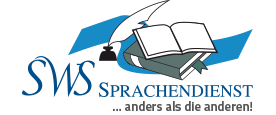Quality
Quality is our first priority. It goes without saying that in daily business our focus lies on quality control. To achieve this goal we not only choose the right native translator for your translation project but also the right technical features. We also invest in quality software products from international market leaders in this sector: CAT systems (=computer aided translation) + TMT (=translation memory tools) as well as glossary and terminology tools such as SDL Trados, STAR Transit, memoQ etc.
you as our customer will benefit from:
Efficiency
These tools not only assure consistent quality and the linguistic consistency of company-specific terminology but also higher efficiency and shorter delivery times.
Cost savings
Redundant texts such as in operating manuals or package texts can be calculated with tiered prices. By doing so you will benefit from further savings in the medium-term.
Text formats and special characters
A trouble-free handling of languages with a different script or special characters as well as the processing of various text formats (e.g. Word, Power Point, Excel, HTML, XML, MIF (FrameMaker), IDML (InDesign) is guaranteed.
Process workflow (according to DIN EN 17100)
- Within our translation process (enquiry-offer-order-confirmation-translation-revision by a 2nd person-customer feedback-archiving) we work closely within the DIN EN 17100 regulations and in compliance with data protection regulations.
- We only place orders with technically skilled native translators, i.e. our translators work exclusively translating into their own mother tongue. We cooperate with many colleagues abroad and are thus able to guarantee the direct translation from one language into another.
- Quality is our first priority: To always reach this high goal our translators have to pass strict selection criteria depending on professional education, fields of expertise, experience and the latest technical features. Furthermore, we also check their services rendered on a regular basis.
- Our particular strength lies in the management and implementation of mutlilingual translation projects: Order processing via one agency and one contact person.
FAQ
Who is in charge of the translation of my documents?
Our colleagues are experienced native translators with an excellent formation (universities or public schools with corresponding certificate). Sometimes they are even sworn in and/or have further university degrees (e.g. engineering, legal education etc.).
Are you able to offer translations in any sector?
Tell us your wishes and we will find the most suitable translator for your project in the following fields (among others): law, business and commerce, technics, medicin, web sites, catalogues, operating instructions, contracts, certificates, school reports, medical findings etc.
Do you offer certified translations as well?
Thanks to our sworn translators we are also able to offer certified translations. Please keep in mind that the delivery time in this case is a little bit longer, since certified translations have to be sent by postal mail. Thanks for letting us know whether you want your documents to be certified when placing the order.
Which formats can be translated?
We are able to translate various text formats such as HTML, XML, MIF by FrameMaker, IDML by InDesign as well as PDF files. Nevertheless, these formats need to be processed first. Should you want another format to be translated, please get in touch with us – we surely find the perfect solution!
How do you calculate the price of a translation?
Our prices are based on standard lines (legal and certified translations) or on the number of words (other kinds of texts, especially technical translations).
How do you calculate the prices for proofreading/editing/localization?
In this case we will invoice the time involved.
What’s the difference between computer-generated and computer-assisted translations?
Computer-generated translation can be useful if you only want to guess the meaning of a foreign text. However, often the content is misleading due to an imprecise translation process. Most professional translators use CAT tools (computer-assisted translation) that also contain “Translation Memories”, a database of previous translations generated by a translator and not by a machine. These Translation Memories are filled regularly with new company-specific translations. By doing so, translation specialists ensure quality and consistency when delivering their translations. On the other hand, customers can save money in the long run.
